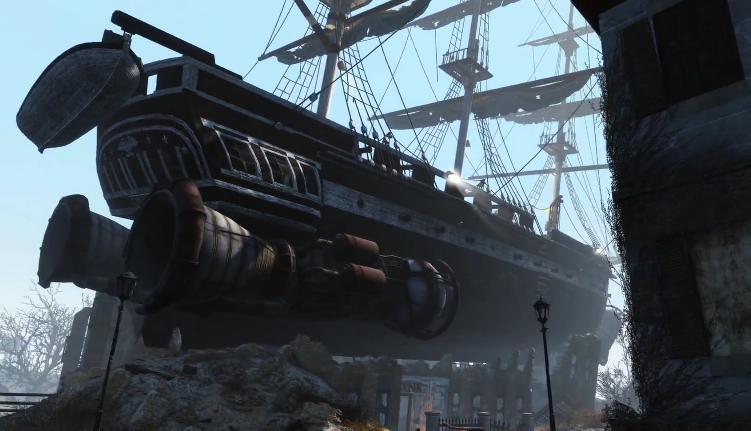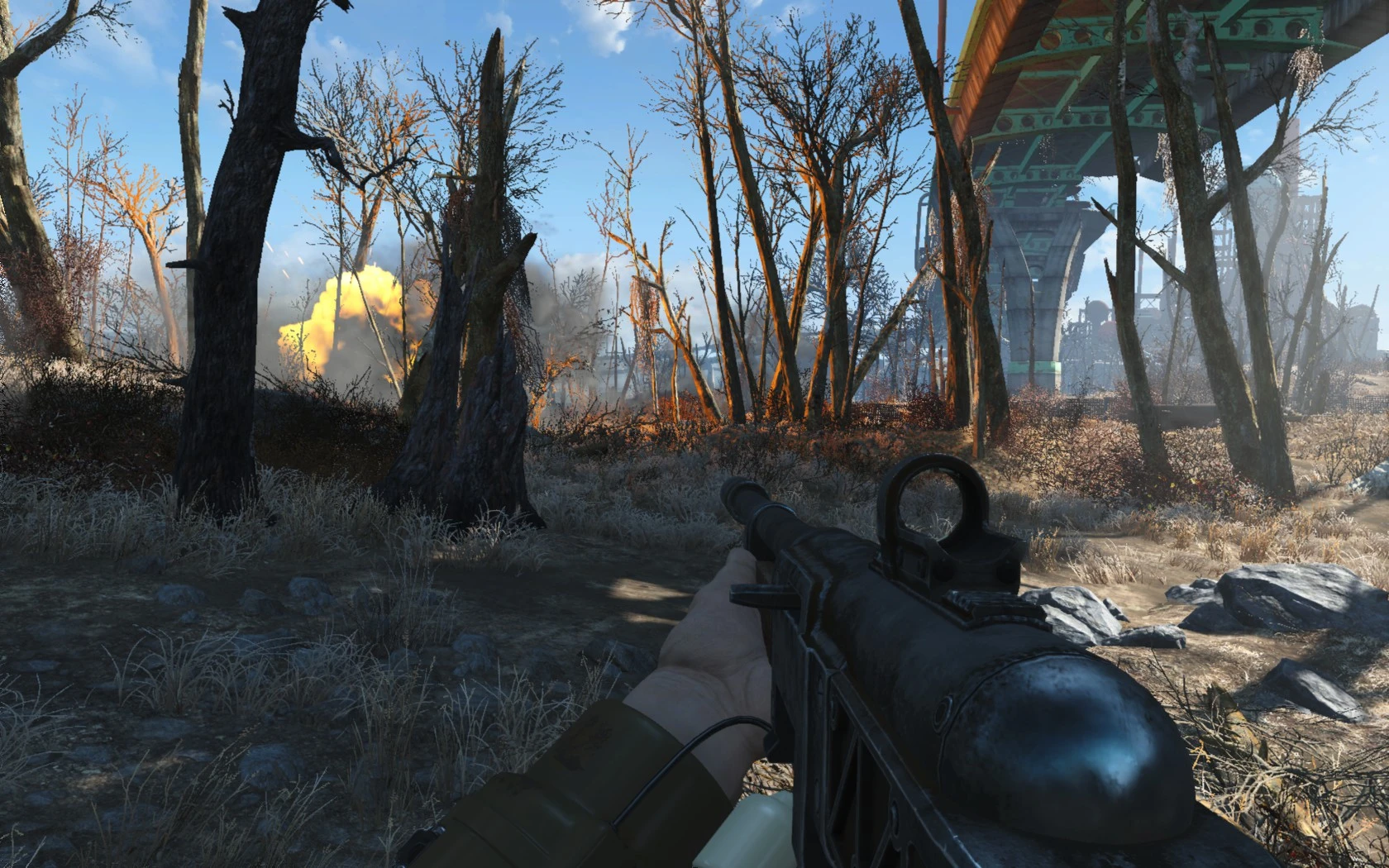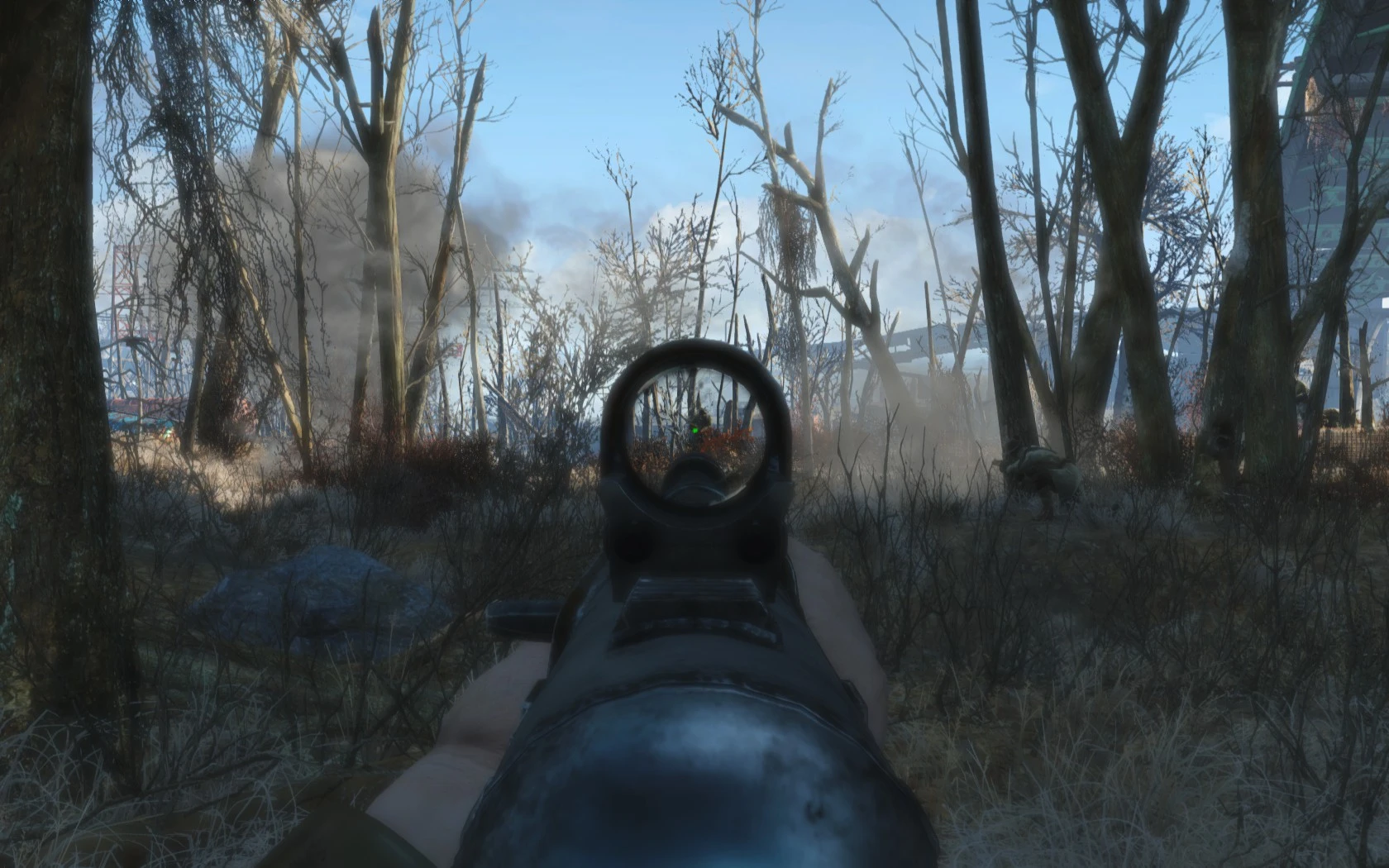

The result was a series originally meant to lampoon patriotic '50s nostalgia now trading heavily on its aesthetic without irony.

Furthermore, Bethesda Softworks and Zenimax's growing obsession with Fallout's branding, plastering things like Nuka-Cola or Vault Boys everywhere they could manage, saw things that were meant to satirize the hyper-capitalist ideals of Pre-War America being taken and used to sell merch. Both are marvels of old American super-science and in-universe Memetic Badasses with cartoonishly violent personalities that embody the warlike nature of America, but where Frank is the ultimate villain and Final Boss of Fallout 2, Liberty Prime assists the protagonist and keeping him around is an objective in multiple games, meaning that, even though he's technically utilized against the genocidal remnants of the American government in his first appearance, not many people remembered him that way. Compare the treatment of Frank Horrigan and Liberty Prime, for an example. Though there were still attempts made, such as the Mass Fusion subplot in 4, they were counterbalanced by the cartoonishly overblown nationalism and associated imagery being either played straight or treated in such a manner that they might as well have been. As the series went on, though, the patriotic fervor elements of the series became increasingly less satirical. But they were also a dark and twisted satire of that ideal, and Pre-War America was near-universally treated as hypocritical, violent, imperialistic, and prejudiced. By a similar count, the first few games dipped themselves in a Raygun Gothic aesthetic that conjured up visions of old-school 1950s Americana and Patriotic Fervor.Not being able to lean on VATS also made it evident just how lackluster the gunplay in the Bethesda-era Fallout games really was. When Fallout 76 effectively stripped out the story entirely, the game was left with little more than combat, base-building, and a handful of RPG Elements. Furthermore, the weaker conversation system killed a lot of the story aspects as well, and without the karma system, there were fewer opportunities for the protagonist to define themselves beyond what the story demanded. But Fallout 4 reworked the leveling and stat system considerably and refocused the game even further around combat, turning the skills into perks while downplaying the importance of stats, which gutted a lot of the RPG side of the equation. Fallout: New Vegas fleshed out the roleplay aspects even further, bringing them close to the level of the first two games and arguably deepening them with the survival-focused Hardcore mode, proving in the process that there was nothing really wrong with the engine (not to mention, the original Fallout engine had little to brag about). This did get a fair amount of They Changed It, Now It Sucks! complaints, but it was broadly accepted, because the game, simply put, was still an RPG with many potential builds or ways to characterize yourself, albeit one that now drew more from Bethesda's The Elder Scrolls and other contemporary action RPGs.



 0 kommentar(er)
0 kommentar(er)
